Notes to an offline self
In India some parents are preferring home schools with no gadget rules.

Logging out of facebook, deleting snapchats, deactivating Instagrams and announcing the inevitable demise on Twitter, many mindful individuals are now keeping smart gadgets off their radar
It’s official. The advent of the refuniks of social media and tech. Logging out of facebook, deleting snapchats, deactivating Instagrams and announcing the inevitable and timely demise on Twitter, many mindful individuals are keeping smart gadgets off their radar. This worrying addiction to social media and gizmos had made us forget face to face parlay. So, be it tech executive Naina Lokhani, who prefers to talk and have face to face discussions at work because otherwise everything gets swept under the data carpet or Sandalwood superstar Shivarajkumar who has chosen to stay away from social media, there is a palpable “going back to our roots” and putting the digital revolution on the backburner. No, don’t get us wrong, there are innumerable positives of the digital and smart age and its path-breaking innovations. Yet, smart phones and social media has created a dystopia that while connecting the fancy free, socially exuberant social avatars, is also creating a long term disconnect.
According to recent reports, young technologists are weaning themselves off their own products in Silicon Valley, and even ensuring their children are sent to elite schools where iPhones, iPads and laptops are banned. Closer home, in India some parents are preferring home schools with no gadget rules. The growing concern is how technology is leading to “continuous partial attention”, limiting focus, and possibly lowering IQ! A Guardian article recently said that the mere presence of smart phones is damaging cognitive capacity — even when turned off! Justin Rosenstein, the creator of the “like” button, himself believes in its negative consequences, according to some reports.

No social media, no gadgets
Sandalwood superstar, Dr Shivarajkumar has refrained from entering social media. The Century Star has seen the rise of this entity that feeds on immediate satiation, “I do not feel the need for it. As an actor too, it is not necessary. We have so much press and TV around. If I feel like sharing or communicating, I can directly reach the concerned. Why convey something and later hide behind social media? I even think, it is not safe.” A thought voiced by many who can see behind this unsuspecting quagmire of social connectivity.
 RJ Anjaan
RJ Anjaan
Dubai-based speaker, travel influencer and yogatrippie, RJ Anjaan also prefers a detox, “We have become oblivious to the world around and are so immersed in a digital sphere. Technology is miraculous, but it makes our lives a hectic clockwork that ignores human biology. We are always connected but never with any real connections. Lost in the virtual world, forgetting reality, what has become of our lives? Social media seems to be turning humanity ‘less’ social. I try once a week to have a gadget-free day. It helps me stay connected with who I am.”
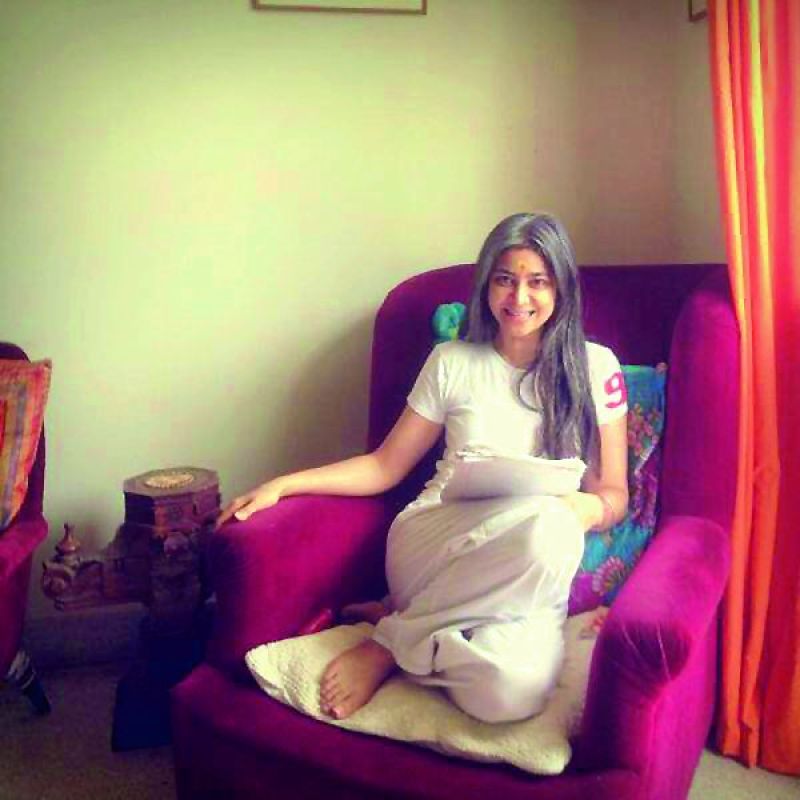 Samita Rathore
Samita Rathore
Yoga guru Bharat Thakur is concerned about this use of technology. He feels it distances us from our very nature. Some philosophers and sociologists are calling it the dumbing of human society, and according to a new YouGov survey of the UK’s Goodhousekeeping Institute, the youth are finding even small everyday chores hard — not knowing how to change a fuse, make a bed or sew a button. You might retort, does it really matter? Especially when there is a tutorial or app at hand. Yes, says psychologist Sharma affirming this deeper hubris of the obsession with digitally savvy interactions.
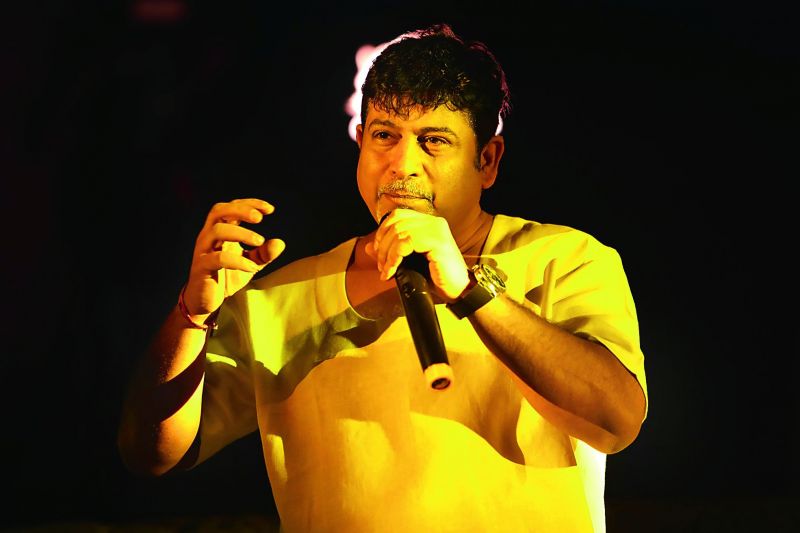 Bharat Thakur
Bharat Thakur
Actress Aishwarya Rai Bachchan is not on social media, neither is Ranbir Kapoor. Brad Pitt and Angelina Jolie too. The larger disconnect is ensconcing itself into the fabric of society that dwells on likes and shares — where good ol’ hellos are defunct. Yes, AI and technology have aided leaps of progress, but on the flip side lies an ugly and incomprehendable animal whose ability is dictated by swiping left or right, without parlay. The dehumanising of human society is imminent.
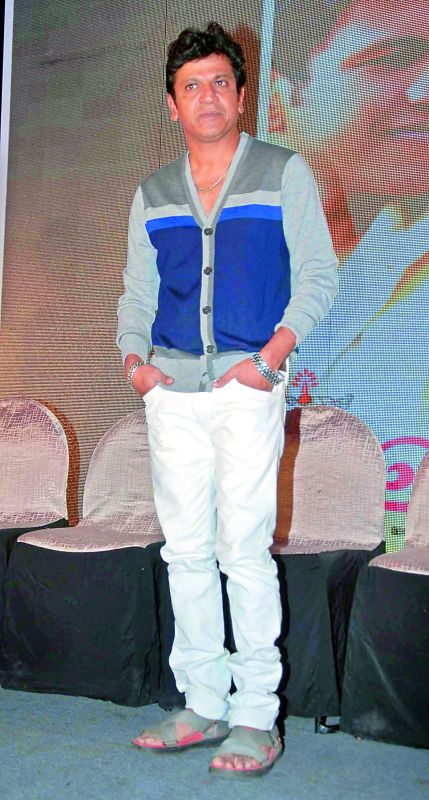 Dr Shivarajkumar
Dr Shivarajkumar
Yoga expert Samita Rathore cautions on balance, “Anything and everything can be used constructively or destructively. Technology is a boon but anything in excess is harmful. A balance is essential. If we can be mature about it, and remember that we have been given hands and legs to walk on earth, then it’s not as bad. Dependency, whether on technology or any object, is self-sabotaging.”
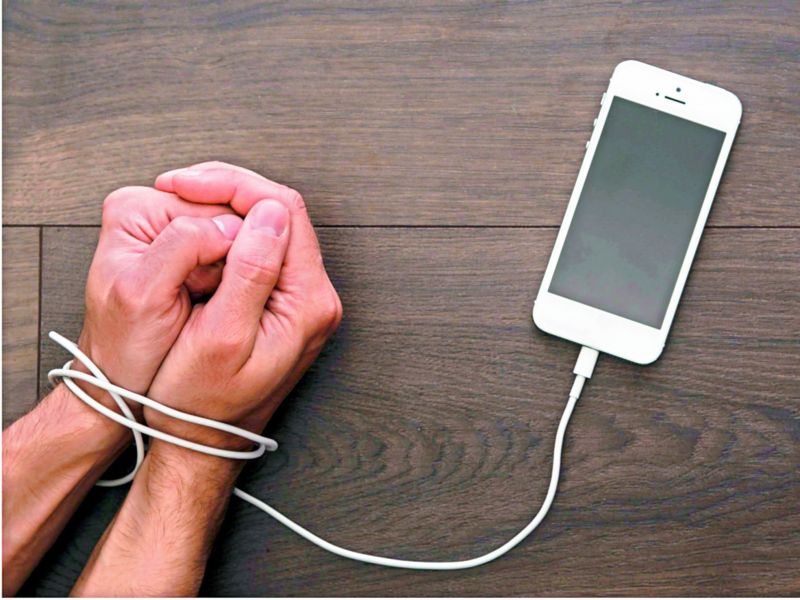
Centers for Technology Addiction in India:
Service for healthy use of technology clinic (SHUT) set up by National Institute of Mental Health and Neurosciences (NIMHANS) in April 2004.
Centre for Children in Internet and Technology Distress started by an NGO Uday Foundation in Sarvodya Enclave, South Delhi.
SHUT Clinic, Department of Psychiatry, AFMC Pune.
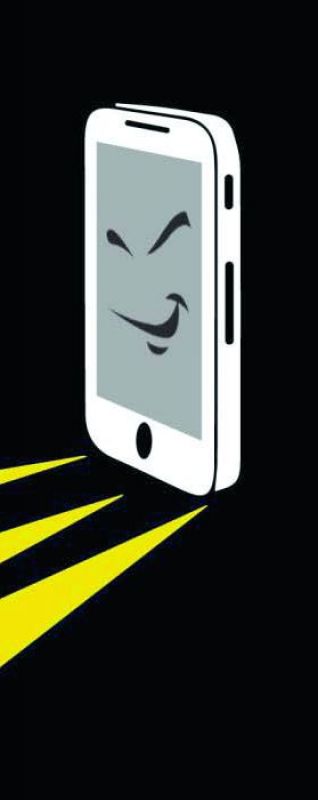
Heart to heart
Grounded in a self-belief of human interactions, Dr Shivarajkumar says, “As an actor, I am confident about interacting directly. If I have something to share, I do it in person. I could be wrong but that is how it works. Even from the times of Appaji (his iconic father late Dr Rajkumar), we have been open about our work and life. What is the big deal about social media that it needs to be used by all?” Shivanna questions, adding, “My family, well-wishers and fans boost my career, and in turn, this (direct) bonding is stronger,” he adds.
Yet, all is not lost. Author and visiting faculty at IIM-A, Apurv Nagpal sees positivity in technology, and feels we will find a balance, “Students today are far better informed and tech savvy. Yes, it does make them more insular with a tendency to refrain from chats but I do not see that as a problem, it’s just their way of being different. The solution isn’t a blanket ban. Students have to be made aware and counselled. How can we declare it bad or good? It’s just different. When TV came, remember talk about addiction to it taking away social skills? Am sure there were learned folk making similar predictions. But you and I did manage to find a balance. This is Round 2 of the same challenge! But the next gen is way smarter. I am positive they will find a balance.”
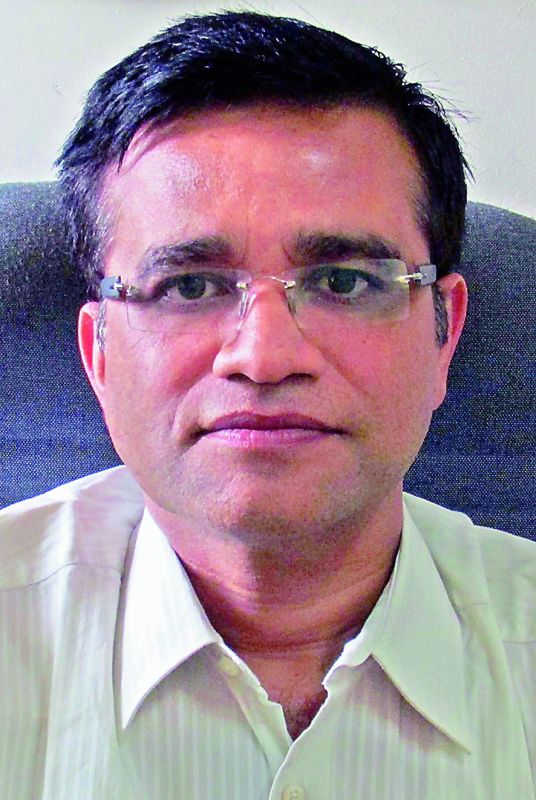 Dr Manoj Kumar Sharma
Dr Manoj Kumar Sharma
The useless class
Israeli historian and author of the bestselling books Homo Sapiens and Homo Deus, Professor Yuval Harai explores this shift in human nature exhaustively. Incidentally, Harari himself does not believe in smart phones, and does not own one. The Israeli thinker worries about the imminent AI-driven world. In an earlier interview with Prof Harari, he had said, “In the 21st century, the rise of AI and biotechnology will transform the world. How to use them wisely is the most important question facing humankind. The future not only of humanity, but probably of life itself, depends on how we use AI and biotechnology.”
Dr Manoj Kumar Sharma, additional professor of Clinical Psychology, SHUT (Service for Healthy use of Technology) Clinic, NIMHANS has been working with youngsters addressing diverse effects of technology at Shut, India’s first clinic to manage technology addiction. His study states, “Problematic Internet use has been associated with psychiatric distress, when seeking online social comfort. These emotional feelings increase the risk of developing Internet addiction though there is dearth of documentation on it.”
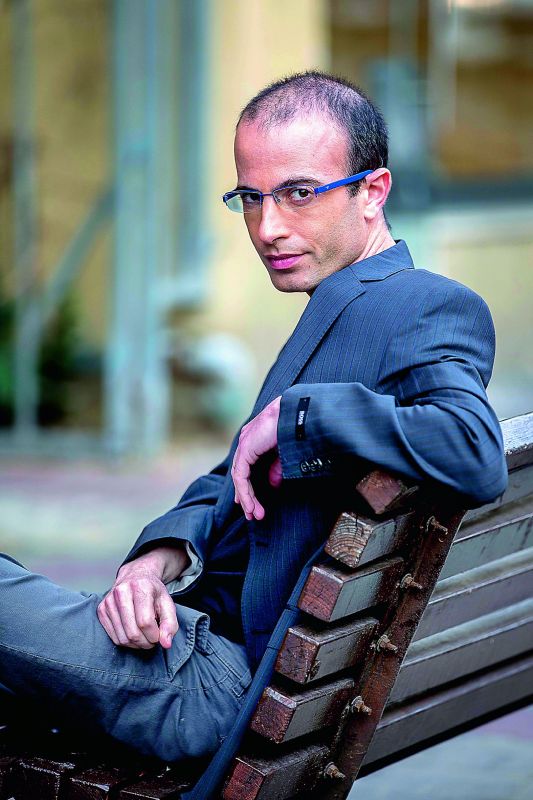 Prof Harari
Prof Harari
Dr Sharma outlines behavioral addiction as a state when there is a preoccupation with, or involvement in, computer-related activities that starts affecting physical, psychological, social and financial well-being.
The Diagnostic and Statistical Manual for Mental Disorders - IV (DSM-IV TR) by the American Psychiatric Association recognises behavioral addiction under substance use disorders, obsessive compulsive disorder or impulse control disorder. These changes have forced researchers and mental health professionals to include Internet addiction in the DSM V appendix as a condition requiring further research. The alarming and rapid advancement in technology still remains a huge concern that is yet to be addressed.
Dr Sharma advises, “Working on an individual’s ideal self and real self is important. Not just the online self, as people today only gauge online presentations. An anxious person who has no offline presence will try and project sociability. In the long run, we have to work on enhancement of consciousness and awareness about the use of technology, benefits and consequences. That is lacking today. Secondly, cyber literacy enhancement is a must, the dos and don’ts of being online — as children as young as 10 years — have had cyber sexual issues. The third is to work on the enhancement of communication in school, at home or office. A gap between the parent and the child and a decrease in bonding and a lack of moral education ensues.”
Prof Harari is concerned about this reliance on networks and gadgets, “By 2040, we may see the creation of a massive new class — the useless class. Billions of people who are not just unemployed, but unemployable. We don’t have any economic model for such a situation. How you deal with the useless class may well be the greatest economic and political question of the 21st century.”
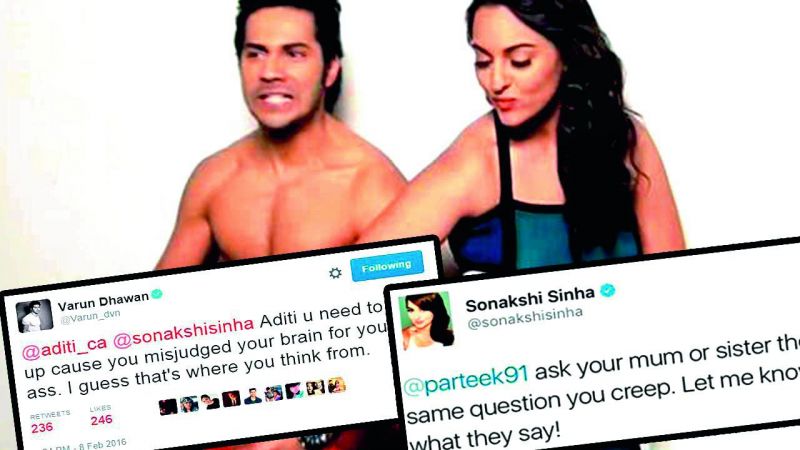
Getting in touch with ourselves
RJ Anjaan advises, “My plea is to stay away from gadgets once in a while. Unplug. Detox and live!” Which brings us back to the dehumanising and Prof Harari has spoken about how the Stone Age man was more hardworking and better equipped, “In the modern era, technology has been distancing us from our bodies. We have been losing our ability to pay attention to what we smell, touch and taste, and get increasingly absorbed in our smartphones and computers. We are far more interested in what is happening in cyberspace than right here, right now... People estranged from their bodies, senses and physical environment are likely to feel extremely alienated and disoriented. If you don’t feel at home in your body, you will never feel at home in the world. So the best advice I can give on this is to get back in touch with your body.”
Yoga guru Bharat Thakur, a prolific painter too, looks at social media with consternation. “Let us analyse the progression — 1980 to 2017. There has been a sea change in how we communicate. It begs the question, where are we heading towards? While social media can be a positive, today, it is promoting disharmony. Till the age of 16 to 19, children should be banned from using social media so that they can cultivate human relations. I am planning on using a regular basic Nokia phone as I don’t want to be inundated by 100 people and their thoughts. Ek insaan jab akela hota hai woh tab hi insaan banta hai (an individual who is alone with himself becomes a human).” The twitter wars and sheer acrimony on social media has gone ballistic, and Thakur echoes psychological studies that have shown that what we learn young is what becomes a part of our character. So, what are we teaching the young?
 Nicole Faria
Nicole Faria
When Bots took over Facebook recently. Or when a game of a visible deranged boy, the Blue Whale Challenge, saw fatalities rising, it begs an inherent scrutiny of digital AI age and what we are doing to balance it. The tiny light flickering at the end of this hard-wired AI tunnel is the slow move of those mindful enough to make a conscious effort to humanise their lives, instead of their savvy digital avatars.
“In joint families that spend time together, there is a lesser use of technology. Yes, technology is unavoidable, as it enhances human evolution. But we have to protect our lifestyle — six hours sleep, adequate meals, social interaction, outdoor physical activity,” advises Dr Sharma.
So would one rather speak and be heard, than tweet and be interred in the digital galaxy? Actress Nicole Faria, who prides herself on balancing this social juggernaut, explains, “Earlier people relied on storytellers. Then came the printing press. Later, letter writing was used to communicate. Then 30 years ago, email and instant messaging came and humans began to invest less time on social interactions. I don’t think the rapid depersonalisation of human interaction today is something new. Rather, it is part of a process that has always existed. Are these changes good? It is difficult to answer. Where would I be without instant messaging or the ability to learn online? I would be tremendously inefficient! The purpose of tech is to make us more productive and that, it certainly has. Yet, all around I see everyone on their phones. I feel alone in a room filled with people. Everyone is engrossed. With the rapid development of AI, our responses to messages, Google searches and preferences are being predicted and suggested. Another step toward social depersonalisation. We create technology, and then technology recreates us.” Something for us to seriously consider?

Answer four C’s to gauge addiction
Control: Are you able to or not able to exercise control over various behavioural habits?
Compulsion: Are you over involved in the above activity when there is no need for it?
Craving: Do you look for an opportunity to use/indulge in your habits?
Consequences: Do you neglect other academic, professional and personal commitments or responsibilities? There is also an Internet addiction Test (IAT) developed by Kimberly Young, which is a reliable and valid measure of addictive use of Internet, developed by Dr Kimberly Young. It consists of 20 items that measures mild, moderate and severe level of Internet Addiction, and along with Facebook Intensity questionnaire is used to measure Facebook usage beyond simple measures of frequency and duration.
— Inputs from Shashiprasad SM
